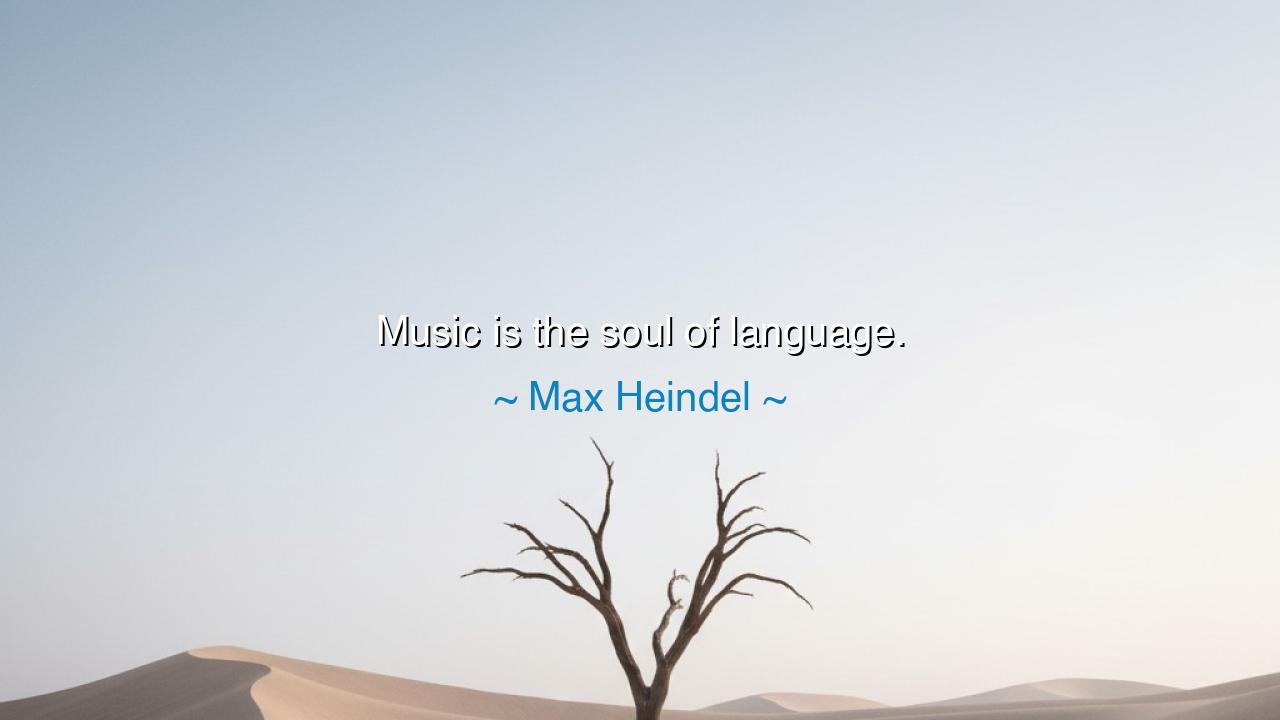
Music is the soul of language.






The mystic philosopher Max Heindel once declared: “Music is the soul of language.” In these words lies a revelation that bridges the unseen and the spoken. For what is language but the body—solid, structured, shaped by grammar and sound? And what is music but the breath that animates, the spirit that gives life to words? Without soul, the body is lifeless; without music, language becomes hollow. But when language is filled with rhythm, tone, and melody, it becomes alive, carrying not only meaning but feeling into the hearts of those who hear.
The ancients knew this truth and lived by it. The poets of old did not speak in plain sentences; they wove their words with cadence, rhyme, and melody, so that the language itself sang. The Homeric epics, the psalms of David, the chants of the Vedas—these were not mere words but living music, designed to reach beyond the mind and touch the soul. Heindel, gazing upon this same truth, reminds us that music is not separate from language—it is its inner fire, the unseen current that gives speech its power to inspire, heal, and transform.
Consider the example of Martin Luther King Jr. His speeches were not only arguments of justice, but songs of freedom. The famous words “I have a dream” did not endure simply because of logic, but because of their rhythm, their rising and falling like a hymn. They carried the music of the soul within the language, and so they awakened millions. Here, we see clearly that what stirs human hearts is not the skeleton of words, but the music that pulses through them.
Even in times of grief, music reveals itself as the essence of language. Recall the Irish laments sung at funerals, or the spirituals of enslaved people in America. The words themselves may be simple, but the music within them carries centuries of pain and hope. Without the melody, the words might pass unnoticed; with the melody, they become immortal, echoing through generations. This is why Heindel speaks of music as the soul—because it is that invisible essence that transforms ordinary language into eternal truth.
The lesson here is both profound and practical: if you wish to speak in a way that moves others, do not concern yourself only with the correctness of words. Seek instead the music within your voice—the rhythm, the tone, the passion. For people may forget the details of what you say, but they will never forget how the soul of your words made them feel. In this way, every act of communication becomes a kind of song, and every person a hidden musician.
Practically, this means learning to listen to the music of your own speech. When you speak, do you rush, flatten, or harden your words? Or do you allow them to flow like waves, carrying warmth and power? It also means seeking out music itself, for by listening deeply, you train your own soul to recognize beauty, harmony, and truth. In time, your language will naturally take on the cadence of music, and your presence will become a melody in the lives of others.
Thus, let Max Heindel’s words guide us: music is the soul of language. Without it, we speak but do not move; with it, we awaken hearts. Let your words sing, let your voice carry the tones of truth and compassion, and you will find that language itself becomes more than sound—it becomes a bridge from one soul to another, a song written across the ages.






AAdministratorAdministrator
Welcome, honored guests. Please leave a comment, we will respond soon